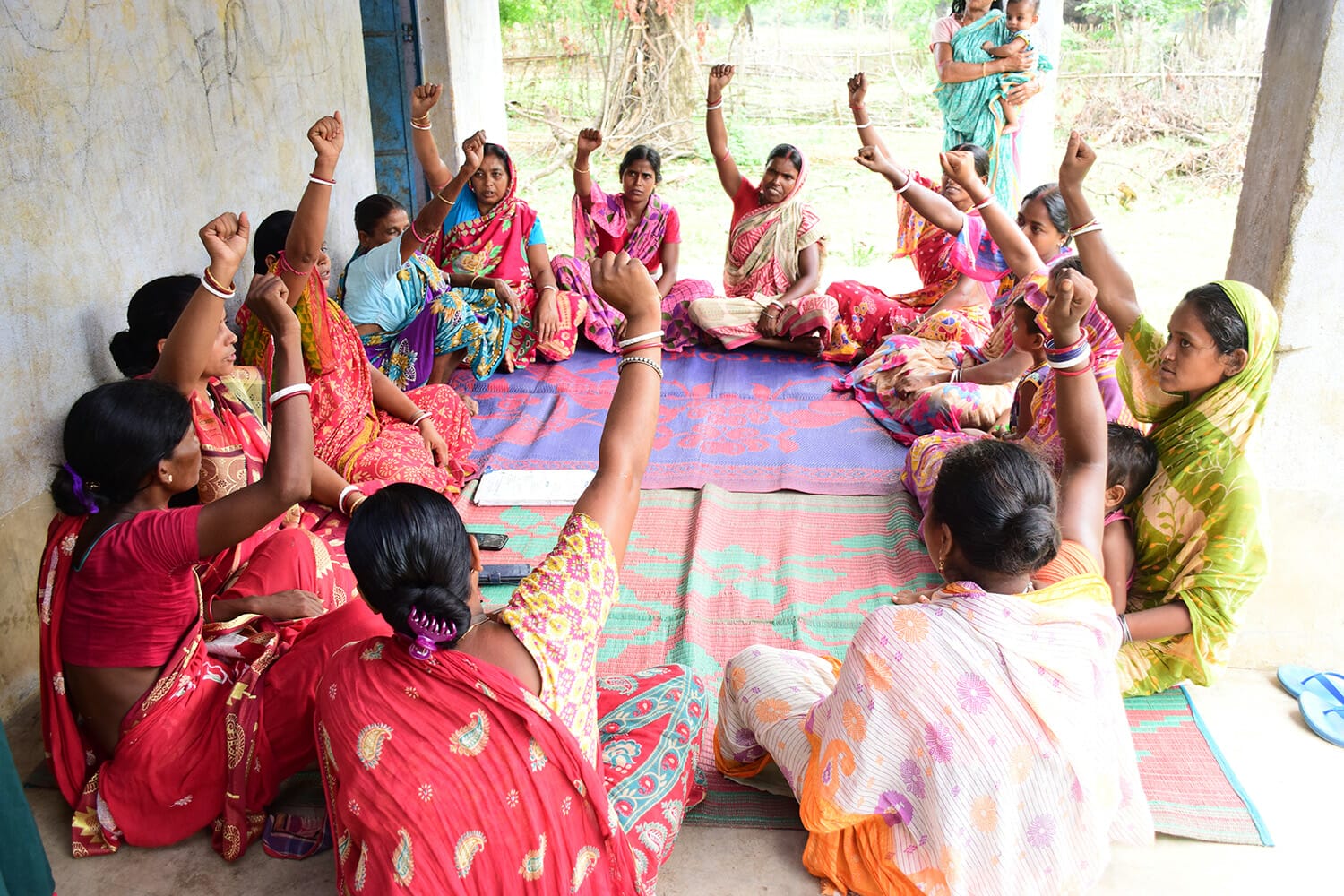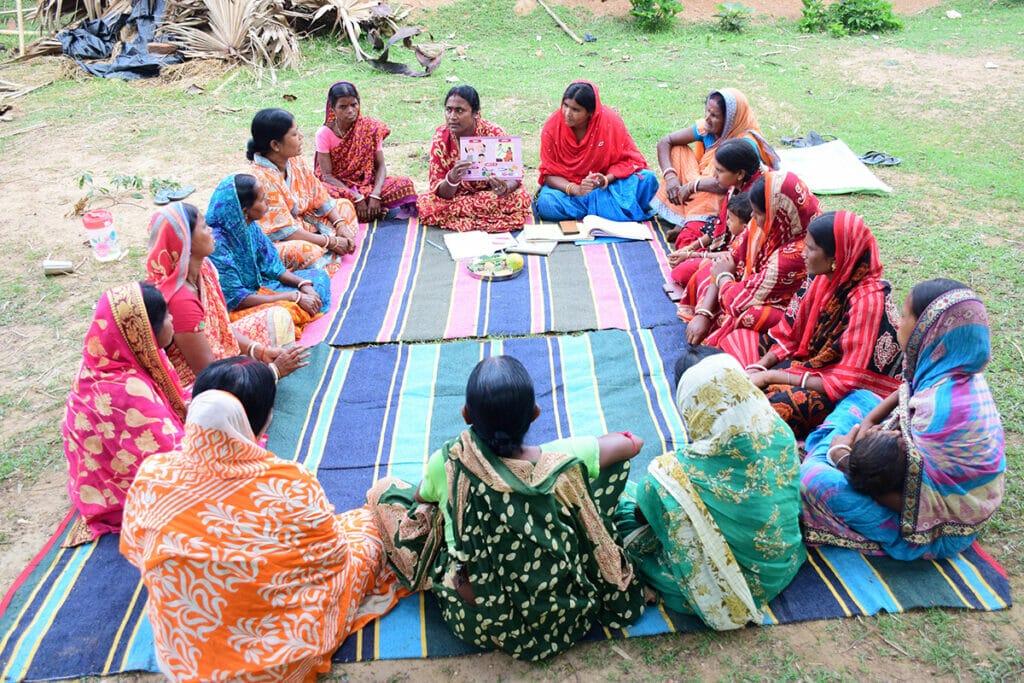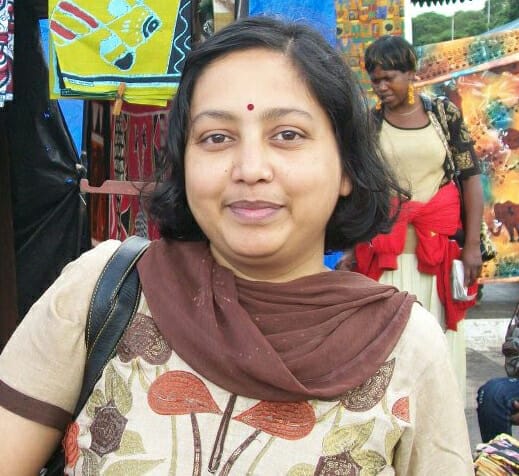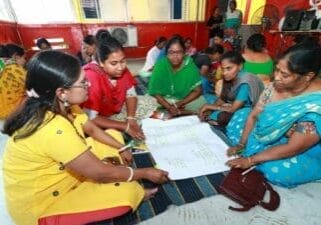News > Blog
Empowering Women in India through Self-Help Groups
Published 08/04/2022 by Global Communities

By Sushmita Mukherjee
Global Communities believes in the power and potential of women’s collectives to bring about positive change. In India, PCI, a Global Communities Partner, is working to design and test community-based solutions that will make meaningful advancement toward gender equality.
Specifically, we work with women’s collectives within the Self-Help Group (SHG) structure, nurtured by the flagship mission of the Government of India — the National Rural Livelihood Mission, aimed at empowering women through economic advances.
We have found that these women’s collectives are instrumental in bringing normative and behavior changes at the individual, family and community levels. PCI’s work on advancing gender equality stems from a gendered analysis of social norms, including the manifestation of patriarchy and its power dynamics. Our analysis helps guide the development of intervention strategies for addressing issues like child/early marriage, domestic violence, intimate partner violence and other violations of the rights of women and girls. We work to sharpen the knowledge and awareness of women in our SHGs, opening their eyes to their vulnerabilities and violations of their rights. This approach enables women to reflect on their status and make informed decisions toward their dignity.
PCI works with the leadership platform of SHGs to equip participants with skills and competencies to provide peer support and protect each other from family or community backlash. These leadership platforms interact with duty bearers in the community to hold them accountable for providing safety and security to women and girls.
SHG members come together as pressure groups to persuade, negotiate and motivate families and community members to follow and adopt positive and changed behavior, which contributes to reduced vulnerabilities for women and girls.

SHIFTING SOCIETAL NORMS
In our endeavor to shift norms regarding early marriage of adolescent girls, PCI is sensitizing SHG members and building their knowledge and skills so they can advocate for their daughters at home and with other family members.
SHG members who themselves are survivors of early marriage are taught skills for effective communication, negotiation and interaction with family members and community leaders. They bring in support and commitment from these groups to enable adolescent girls to complete their tertiary education, chase their aspirations and stop the prevalence of early marriage for adolescent girls. These women leaders also engage with institutional response mechanisms such as the police and district administration to ensure parents are not dodging laws and stopping girls’ education.
Similarly, for initiatives related to domestic violence, an SHG member in each community is trained on laws, rules and referral skills that help protect survivors. She is a volunteer who is available in her neighborhood for immediate or quick support and guidance to all women at all hours. We also connect this volunteer with our Helpdesk so cases can be directed to the right person in a timely manner.
Our Helpdesk
PCI recognizes the need women have for privacy and confidentiality to discuss and mitigate their vulnerabilities. Our Helpdesk is an important component for our interventions in India. The Helpdesk is operated by women leaders from Self-Help Groups who are trained in counseling and referral services while engaging with victims/survivors of gender-based violence. Women or girls who call the Helpdesk are heard, informed and supported to make decisions and/or ask the right questions to map their way forward. Helpdesk staff counsel adolescent girls who want to avoid early marriage about different streams of education to help them pursue their dreams and aspirations and mentor them on life skills they need to navigate through obstacles.
A combination of reflective discussion, awareness generation, working as social pressure groups and engagement with duty bearers has generated a lot of enthusiasm and confidence among women that a life free of violence and drudgery is available to them and that SHG members and systemic provisions are available for support.
STRENGTH IN COMBINED EFFORT
Advancing gender equality is not a one-time linear effort; it requires multi-dimensional and multi-sectoral coordination. In the communities where we work, men hold the authority and power to control the lives of women. This is ingrained as normal in all arrangements across all levels, from familial to gubernatorial. Hence, it becomes essential for all sectors to come together to understand the concept of gender equality in a meaningful way in order to integrate that knowledge in their work. Officials need to sense how their work cultures, communication, responses and reactions encourage patriarchy and push women further from accessing their rights.
As an example, to mitigate early marriage of adolescents, we need the law to work together with education, skills programming, economic advancement, safety and health care. Only then can we ensure that adolescent girls have quality agency within themselves to lead their lives with dignity and in good health.
In addition, we know that to shift social norms in a sustained manner, it is important to target a full geographic region. This builds community ownership with that region and allows for wider acceptance of new norms while diminishing any pressure when community members deviate from old norms.
In the next five years, PCI is working so that partnership between community, private sector and public sector actors grows stronger. As these entities depend on one another for progress, they will push each other toward positive shifts. Through this work, women, girls and gender minorities will be able to pull together the necessary stakeholders to break barriers and advance gender equality.

Sushmita Mukherjee is the Director of Gender and Adolescent Girls at PCI India, a Global Communities Partner. The following op-ed was based on her remarks at a panel discussion facilitated by FHI360 during the Gender Plus Summit in May 2022. The panel was titled “Inclusive, Equitable Partnerships for Combatting Gender-based Violence” and included co-panelists from Jordan, Kyrgyzstan and Bangladesh.






